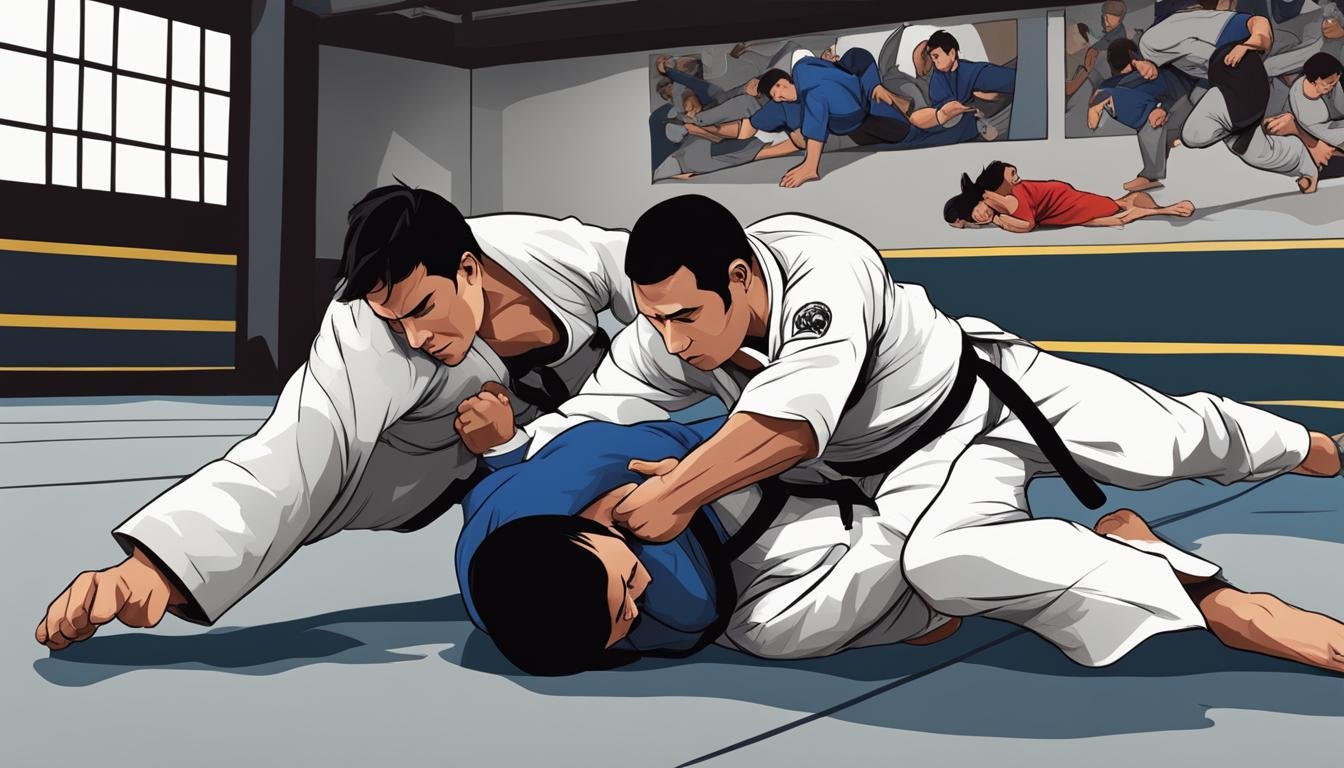Brazilian Jiu-Jitsu (BJJ) is a martial art and combat sport that focuses on grappling, ground fighting, and submission holds. It originated in Brazil in the early 20th century and was developed by the Gracie family. BJJ emphasizes taking the fight to the ground, gaining a dominant position, and using techniques such as joint locks and chokeholds to force an opponent into submission. BJJ training offers numerous benefits, including improved physical fitness, self-defense skills, mental discipline, and stress relief. It is suitable for people of all ages and sizes, as it relies on leverage and technique rather than brute strength.
Key Takeaways:
- BJJ is a martial art and combat sport that focuses on grappling and ground fighting.
- It originated in Brazil and was developed by the Gracie family.
- BJJ training offers various benefits, including improved physical fitness, self-defense skills, mental discipline, and stress relief.
- It is suitable for people of all ages and sizes, as it relies on leverage and technique.
- BJJ emphasizes taking the fight to the ground and using submission holds to force an opponent into submission.
Tips for Getting Started with BJJ Training
1. Find a reputable BJJ academy or gym that offers beginner-friendly classes.
2. Invest in a high-quality BJJ gi and necessary equipment.
3. Attend classes regularly and listen to your instructor’s guidance.
4. Embrace the learning process and be patient with yourself.
5. Stay consistent and committed to your training to see progress.
BJJ Training for Self-Defense
BJJ training is an excellent choice for individuals looking to learn self-defense techniques. With its emphasis on leverage and technique, BJJ equips practitioners with the skills needed to protect themselves in real-life situations. By mastering various techniques such as joint locks and chokes, BJJ practitioners can neutralize larger and stronger opponents effectively.
One of the key advantages of BJJ for self-defense is its focus on ground fighting. In many confrontations, fights often end up on the ground, making BJJ’s ground control techniques vital for self-defense. By learning how to control an opponent and counter their attacks from this position, BJJ practitioners gain a significant advantage in real-life scenarios.
In addition to practical techniques, BJJ training also instills mental fortitude and confidence. The practice of BJJ encourages practitioners to remain calm and composed, even in high-pressure situations. This mental resilience is crucial for effective self-defense as it allows individuals to think strategically and react appropriately under duress.
Whether you’re a beginner or experienced martial artist, BJJ training can provide you with the necessary skills to defend yourself and others. By mastering the art of leverage and honing your technique, BJJ empowers individuals to navigate real-life situations with confidence and ensure personal safety.
FAQ
What is Brazilian Jiu-Jitsu (BJJ) training?
Brazilian Jiu-Jitsu (BJJ) training is a martial art and combat sport that focuses on grappling, ground fighting, and submission holds.
Where did BJJ originate?
Brazilian Jiu-Jitsu (BJJ) originated in Brazil in the early 20th century and was developed by the Gracie family.
What are the benefits of BJJ training?
BJJ training offers numerous benefits, including improved physical fitness, self-defense skills, mental discipline, and stress relief.
How are BJJ classes structured?
BJJ classes typically include a warm-up, technique instruction and practice, and sparring sessions.
What are the benefits of BJJ for self-defense?
BJJ is highly effective for self-defense purposes, teaching practitioners how to defend themselves using leverage, joint locks, and chokes.
How can I get started with BJJ training?
To get started with BJJ training, find a reputable academy or gym that offers beginner-friendly classes and attend regularly.

